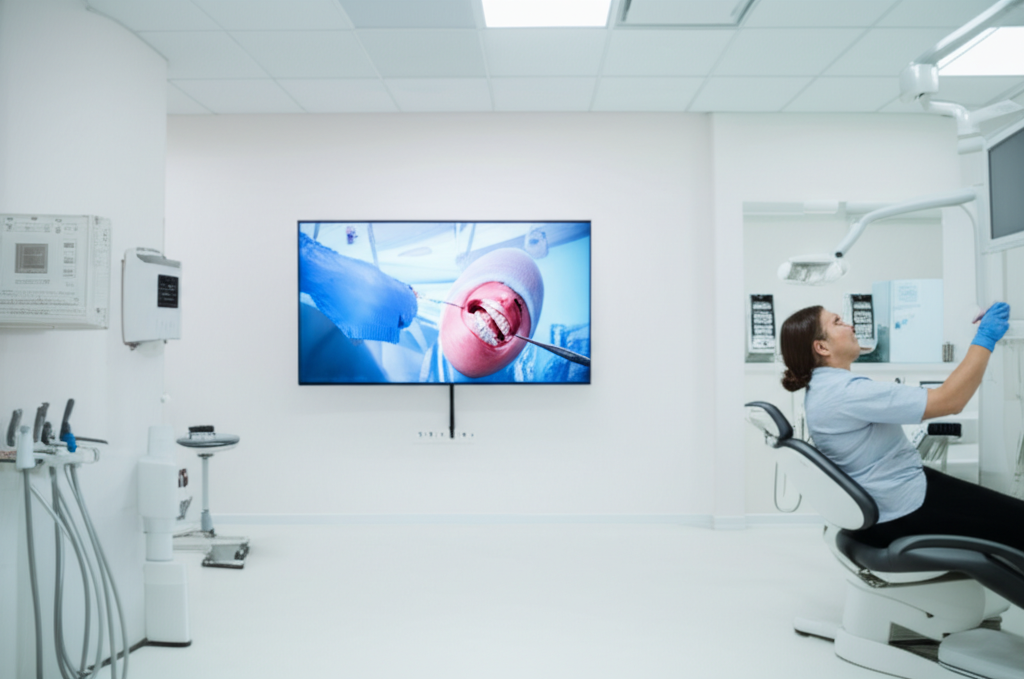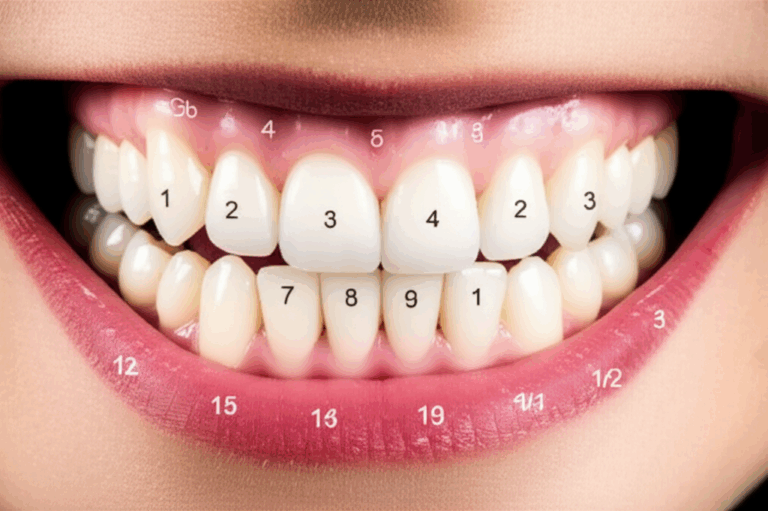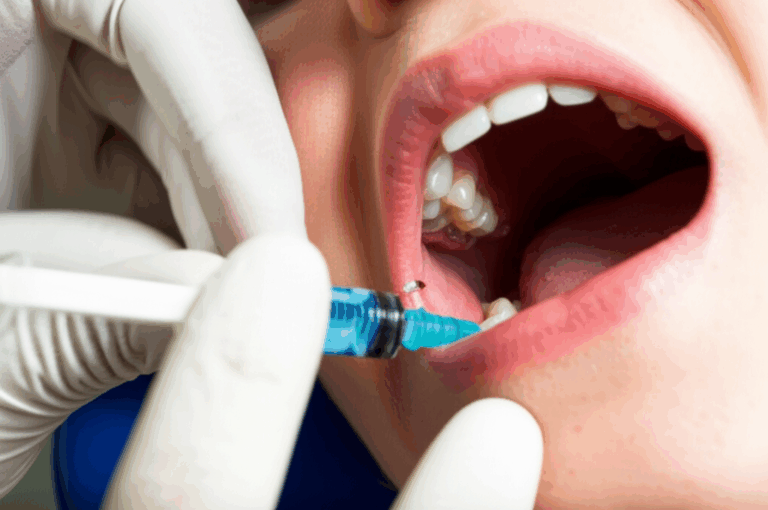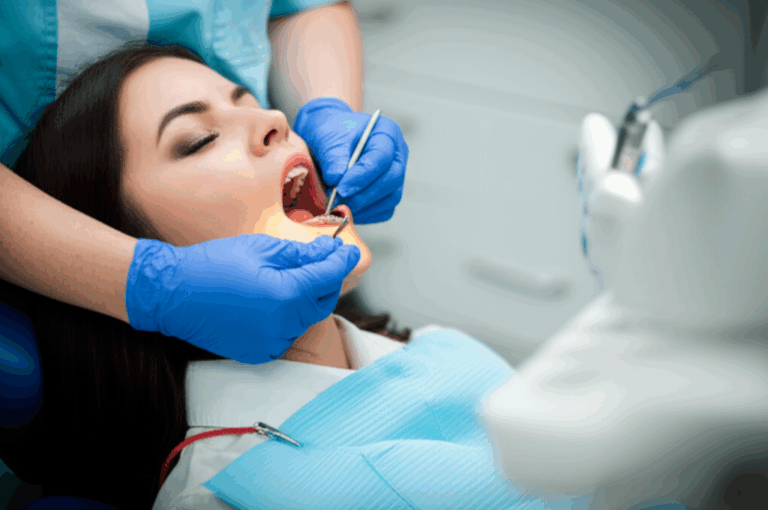
The Definitive Guide: What Are the Steps to Becoming a Dentist?
Have you ever watched your dentist at work and thought, “Could I do that?” Maybe you’re a high school student thinking about your future, a college student searching for your purpose, or a parent who wants to help your child choose a job. Deciding to become a dentist isn’t just about liking science or wanting people to have nice teeth—it’s a big choice, and it’s normal to have questions.
Maybe you’re thinking: How long does it really take? What do I need before dental school? What are the steps to becoming a dentist, one by one? If all this makes your head spin, don’t worry. Lots of people who take this path ask the exact same things. The good part? You’re in the right spot.
In This Article
- Is A Career in Dentistry Right for You?
- Step 1: Laying the Foundation (High School & Early College)
- Step 2: Gaining Experience and Building Your Application
- Step 3: Applying to Dental School
- Step 4: Dental School – The Next Big Leap
- Step 5: Licensure and Kickstarting Your Career
- What Career Options and Outlook Await You as a Dentist?
- Key Takeaways and Your Next Steps
- Frequently Asked Questions
Is A Career in Dentistry Right for You?
Choosing dentistry is a big step—one that could give you a job you enjoy, money for the future, and the happiness of helping others. But let’s be honest: the journey needs hard work, patience, and a strong focus. So, how do you know if being a dentist fits you?
- You’re interested in science and health, and like subjects such as biology or chemistry.
- You’re good at talking with people. Dentists talk to patients, coworkers, and assistants all day long.
- You like working with your hands. Dentistry is both art and science. You need good hand skills.
- You like helping others. Patients trust you with their teeth, feelings, and sometimes their confidence.
- You’re ready for a long trip. Becoming a dentist is not quick—it takes years.
Still excited? Good—let’s look at the path, step by step.
Step 1: Laying the Foundation (High School & Early College)
Doing Well in High School
High school is your first step. Your grades matter—a lot, mostly in science and math. Classes like biology, chemistry, advanced math, and even physics will make things easier later. Dental schools also like to see clubs and activities. So join science clubs, help at health groups, or run for class office. A good GPA and extra stuff you do can help in the future.
College Degree (Pre-Dental Track)
In college, you need to finish a degree. You don’t have to major in biology or chemistry, but most dental students pick a science road (like biology, chemistry, or biochemistry) because these classes match what dental schools ask for.
Basic Courses Dental Schools Need:
- General Chemistry (1 year, with lab)
- Organic Chemistry (1 year, with lab)
- Biology (1 year, with lab)
- Physics (1 year, with lab)
- Biochemistry
- English/Writing
- Math (Calculus or Statistics)
You also need to keep your grades up, especially in science. Most dental schools look for an average grade point of 3.6 – 3.7. That sounds tough, but you can do it by working steady.
Step 2: Gaining Experience and Building Your Application
Shadowing and Real-Life Practice
Dental schools want to see more than just good grades. They want proof you’ve checked out the job and know what it’s really like. How do you show this? By shadowing dentists in real offices. Try to get at least 100 hours, and watch different types of dentists if possible: regular dentists, orthodontists, oral surgeons, kids’ dentists, and so on. This shows you know what being a dentist is about.
Volunteering and Helping Others
Dental schools love people who give their time to others. Volunteer at clinics, hospitals, health fairs, or with your college pre-dental club. There’s no set number of hours—but more is always better if it’s steady. This shows you care and want to help.
Research Work (Good, Not Required)
Some schools care about research, especially if you’re thinking about a dental specialty or teaching in the future. Spending time in a science lab or a dental lab can make your application stronger. Did you show your work at a conference? Even better.
Other Activities & Being a Leader
Dental schools don’t want robots with perfect grades. Get involved in student clubs, student council, or sports. Being a leader shows you can work with people, which is a big part of being a dentist.
Dental Admission Test (DAT)
Here’s the big test: the DAT. It’s like the SAT for dental school—testing if you’re ready for what’s next. The DAT has science, hands-on ability (shapes and space problems), reading, and math.
- When to take it: After your third year of college, after most required classes.
- How to study: Start 3-6 months before. Use DAT books, online tests, and do practice runs with a timer.
- What to aim for: The average score for people who get accepted is about 20-21 (out of 30). Higher is better.
Step 3: Applying to Dental School
The AADSAS Application Site
Now comes the big moment. Meet AADSAS—the main place to apply to most U.S. dental schools with one big application.
When to Apply:
- Applications open in early June.
- Try to send yours early (the summer before your last college year is good).
- Deadlines are different at each school, but applying early is always best.
What’s in the Application?
- Transcripts with all your grades from every college you’ve attended.
- DAT Scores sent straight from the testing place.
- Personal Statement explaining why you want to be a dentist, who you are, and what inspires you.
- Recommendation Letters (usually 3 or 4): These usually come from your teachers, school advisors, or dentists you shadowed.
- Experience Section: Write down your shadowing, volunteering, research, activities, and leadership.
- Secondary Applications: Some schools want extra small essays. They might ask about their values, diversity, or why you fit their program.
Take your time—this is your spot to show everything you’ve done.
Dental School Interviews
If your application looks great, you’ll get an interview invite. Some schools do regular interviews, others use Multiple Mini Interviews (MMI)—like speed dating but to test your thinking and people skills.
Getting Ready:
- Practice common questions (“Why do you want to be a dentist?” is always asked).
- Think about how you’d handle hard situations.
- Dress nice and show your real self. This is where you show your excitement and people skills.
Money Planning
Let’s talk money. Dental school costs a lot. Tuition at public schools is about $40,000–$60,000 per year (in-state), and private schools are more—up to $70,000–$90,000+. And that’s before food, rent, or fees.
Money Help:
- Fill out the FAFSA (for student aid).
- Look for scholarships from the American Dental Association and others.
- Think about federal student loans—most dental students finish with $300,000–$400,000 in loans.
It might sound scary, but planning ahead and borrowing smartly can make it work, especially since dentist pay can make it worth it in the end.
Step 4: Dental School – The Next Big Leap
Congrats! You made it. But now the real work begins.
Dental School Classes: DDS/DMD Means the Same
Dental school takes four tough years. You’ll learn facts, practice on dummy teeth, and work on real patients.
- Years 1-2: Lots of science (anatomy, chemistry, germs), and practice in the lab. You spend a lot of time learning to use your hands.
- Years 3-4: Into the clinic! You start seeing real patients (with teachers watching), doing all sorts of dental jobs from cleanings to fixing teeth.
Is there a difference between DDS and DMD? Not really. They’re just different names for the same dentist degree, depending on the school.
Picking a Specialty (If You Want)
Not everyone does this, but if you want to be an orthodontist, do surgery, or help kids, you need something called a residency after dental school. Specialties include:
- Orthodontics
- Mouth/Face Surgery
- Kids’ Dentistry
- Root Canals
- Gum Specialist
- Fake Teeth
Residency usually takes 2-6 more years.
Tests and Licenses
Before you can be a dentist, you need to pass big tests—like the National Board Dental Exams (NBDE Part I & II or INBDE), plus hands-on tests (like ADEX or your state’s test).
Don’t stress—your school will help you get ready. These tests are the last step before you can put “Dr.” in front of your name.
Step 5: Licensure and Kickstarting Your Career
Optional: Extra Training
Some new dentists do a short extra program (called GPR or AEGD). These give you even more real-world practice. They help if you want to work in a hospital, teach, or handle tough dental problems.
State License
Wherever you work, you need a state license. Every state is different, but you always need:
- An application with a fee
- Proof you finished dental school
- Passing test scores
- A background check
Some states need other tests—so look this up early.
Keep Learning
Dentists have to keep learning. Most states want you to do a certain number of learning hours every year to keep your license. This means classes, hands-on practice, or meetings to keep up with new dental tools, care, and rules.
What Career Options and Outlook Await You as a Dentist?
Job Outlook and Growth
U.S. job stats say dentist jobs should grow about 4% from 2022 to 2032—about average for most jobs. More people need dental care thanks to older people, more tooth care awareness, and new dental tech.
How Much Dentists Make
The reward? A good paycheck. The middle pay for dentists is $163,220, but this changes a lot. Dentists who do surgery or orthodontics usually earn more, and pay changes by where you live, how long you’ve worked, and if you own your own office.
Career Paths
Dentistry isn’t just one thing. Here’s what you could do:
- General Dentist: See all kinds of patients and do all kinds of dental work.
- Specialist: Do only certain things, like braces or surgery.
- Associate Dentist: Work for another dentist or at a group practice (nice for new grads).
- Office Owner: Run your own place, make your hours.
- Teacher: Help train new dentists.
- Public Health or Military Dentist: Serve big groups or the military.
Some dentists work on new dental tech, maybe in a digital dental lab, or with new materials at a dental ceramics lab. There are many possible paths.
Work-Life and Balance
Dentists usually work 35-40 hours a week and can control their schedules more than some other types of doctors. Most dentist offices run on regular hours, so it’s easier to have family time or take care of yourself.
Burnout and Staying Well
Dentistry can be stressful. Balancing patient needs, running an office, and keeping up with learning can feel like a lot. Taking care of yourself and asking for help when needed will help you last long in your career.
Key Takeaways and Your Next Steps
Here’s what it all boils down to:
- It takes 8 or more years (4 in college + 4 in dental school), maybe more for specialty.
- You need good grades in science, a strong DAT score, and real-world practice.
- Dental school is tough. Show you are caring and involved, not just book-smart.
- Dental school is learning science, practicing skills, and caring for patients.
- You need to pass tests and keep learning to stay a dentist.
- The reward is a respected, well-paid job, helping people feel and look better.
Ready? Start Today!
Here’s a quick plan:
- Meet with a pre-dental advisor in high school or college.
- Plan your college classes ahead of time.
- Start shadowing and doing volunteer work early!
- Check out different dental schools and what they need—every one is a little different.
- Get ready for the DAT and keep your grades up.
- Think ahead about how to pay for school and look for scholarships.
- Stay focused, but enjoy each part of the trip.
Dentistry is always changing. From high-tech tools in a 3d dental lab to new types of dental care, there’s always something new for people who love to learn.
Frequently Asked Questions
How competitive is dental school?
On average, dental schools accept about 5-10% of people who apply. Good grades, DAT scores, and lots of different experiences help you stand out.
What’s the difference between a DDS and a DMD?
Nothing—they are just two different names for the same dental degree.
How much does dental school cost?
Plan to spend $40,000–$90,000 every year, depending if it’s a public or private school. Most dentists finish owing about $300,000–$400,000.
Are there other jobs you can do with a dental degree?
Yes! Besides treating patients, some dentists teach, do research, work in public health, or get into dental business. If you like the hands-on part, working in a crown and bridge lab or with dental products could suit you.
What if I don’t get in the first time?
Lots of people need to apply more than once. Use school feedback to do better—study for the DAT again, get more shadowing, or take extra science classes.
Final Thoughts: Your Smile-Shaping Journey
Being a dentist takes a long time but is very rewarding. It needs smart thinking, kindness, and good hand skills, but helping people—fixing pain, giving new smiles, making people confident—makes it all worth it. Whether you’re just starting or getting ready for interviews, every part is a step toward a job that matters.
Remember: every dentist started like you—curious, sometimes nervous, and full of questions. If you’re interested, talk to people, find mentors, and begin your journey to helping people smile.
Sources:
- American Dental Association (ADA)
- U.S. Bureau of Labor Statistics (BLS)
- American Dental Education Association (ADEA)
- AADSAS and Dental School Admissions Guides
(Note: All numbers and facts are current as of 2024. For the latest advice, check the official sites of your favorite dental schools and top dental groups.)








